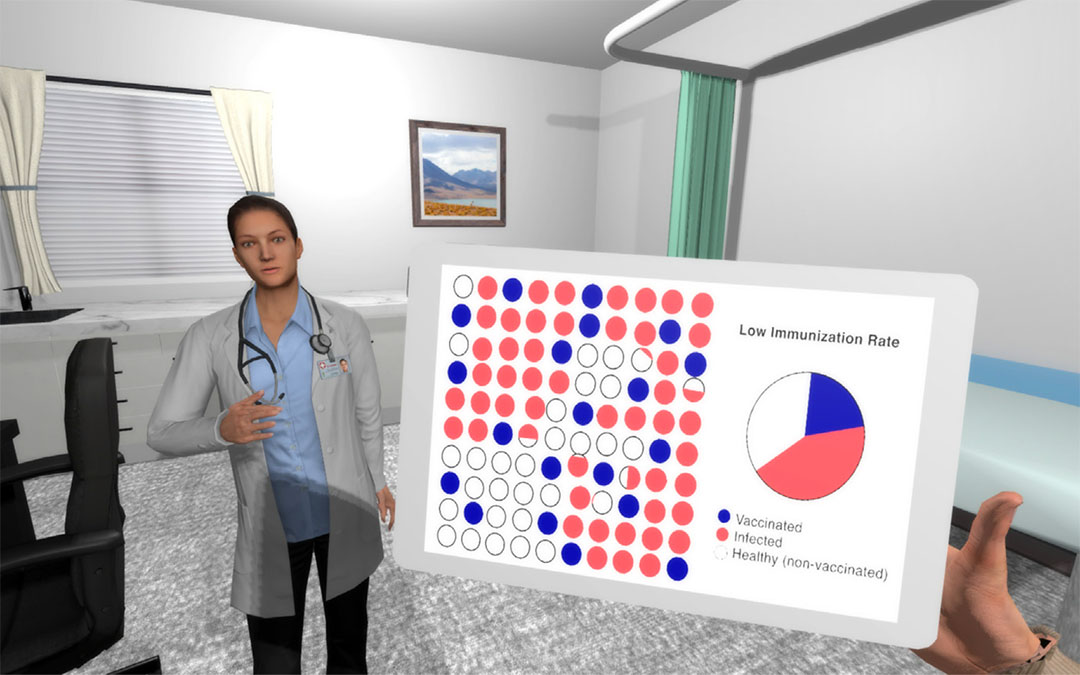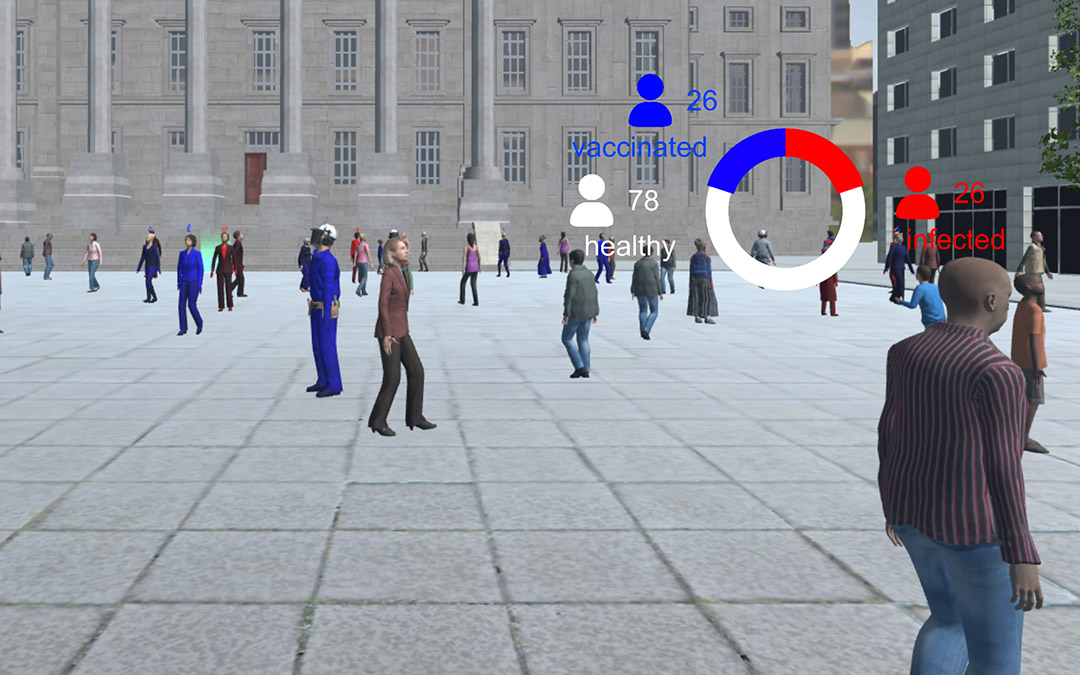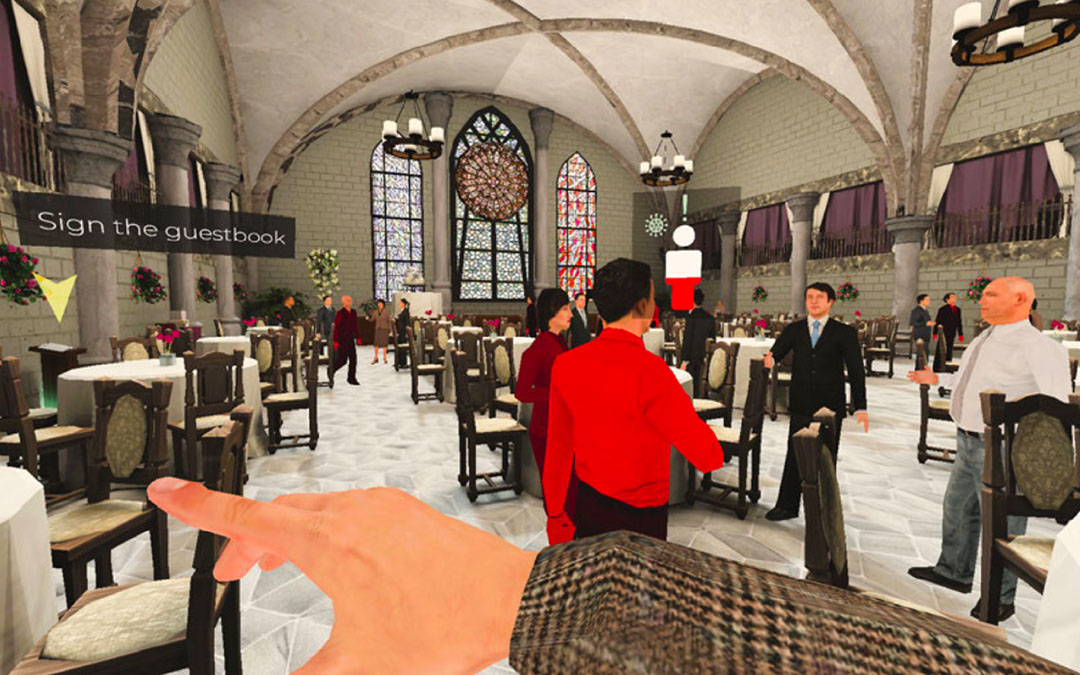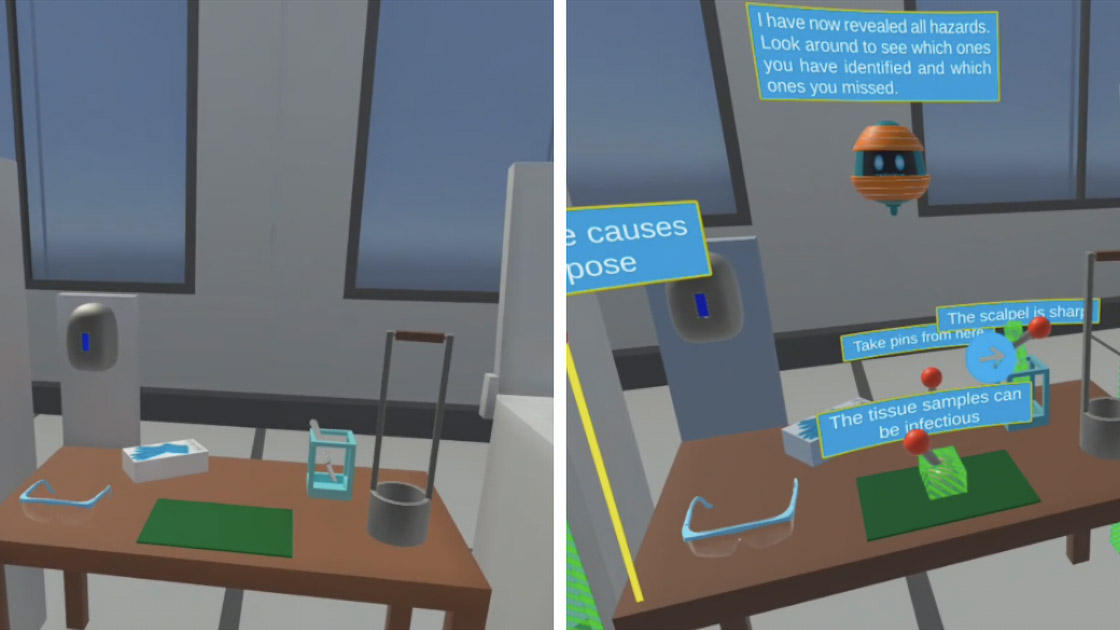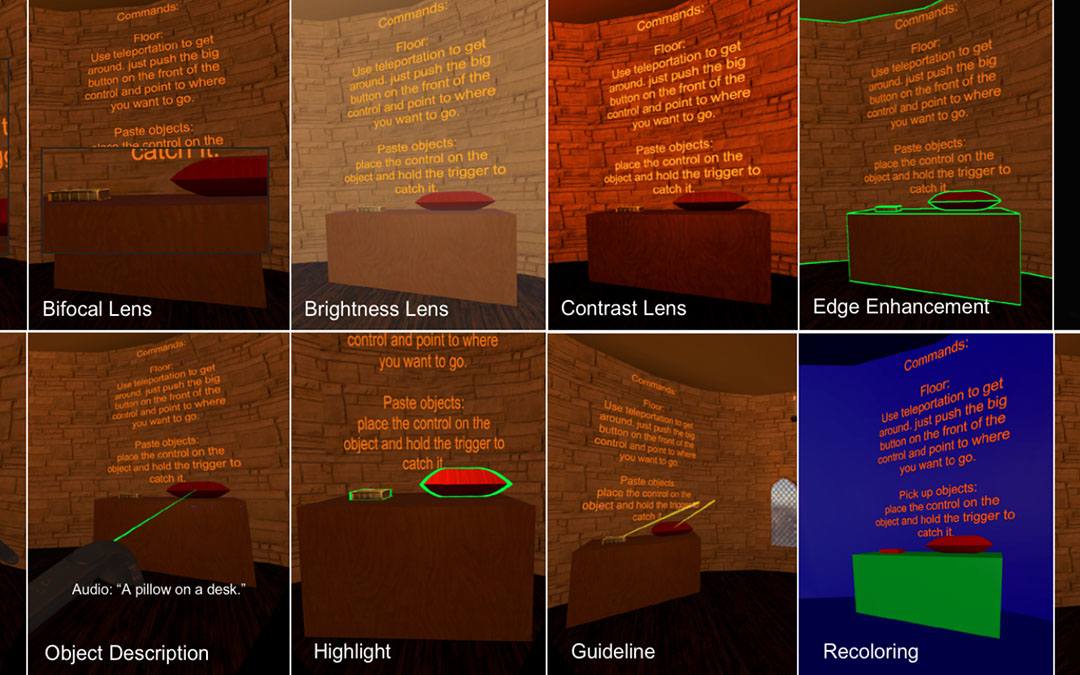A self-administered virtual reality intervention increases COVID-19 vaccination intention
Vaccine 2021Abstract
Effective interventions for increasing people’s intention to get vaccinated are crucial for global health, especially considering COVID-19. We devised a novel intervention using virtual reality (VR) consisting of a consultation with a general practitioner for communicating the benefits of COVID-19 vaccination and, in turn, increasing the intention to get vaccinated against COVID-19. We conducted a preregistered online experiment with a 2×2 between-participant design. People with eligible VR headsets were invited to install our experimental application and complete the ten minute virtual consultation study at their own discretion. Participants were randomly assigned across two age conditions (young or old self-body) and two communication conditions (with provision of personal benefit of vaccination only, or collective and personal benefit). The primary outcome was vaccination intention (score range 1-100) measured three times: immediately before and after the study, as well as one week later. Five-hundred-and-seven adults not vaccinated against COVID-19 were recruited. Among the 282 participants with imperfect vaccination intentions (<100), the VR intervention increased pre-to-post vaccination intentions across intervention conditions (mean difference 8.6, 95% CI 6.1 to 11.1, p<0.0001). The pre-to-post difference significantly correlated with the vaccination intention one week later, ρ=0.20,p<0.0001. The VR intervention was effective in increasing COVID-19 vaccination intentions both when only personal benefits and personal and collective benefits of vaccination were communicated, with significant retention one week after the intervention. Utilizing recent evidence from health psychology and embodiment research to develop immersive environments with customized and salient communication efforts could therefore be an effective tool to complement public health campaigns.
Reference
Aske Mottelson, Clara Vandeweerdt, Michael Atchapero, Tiffany Luong, Christian Holz, Robert Böhm, and Guido Makransky. A self-administered virtual reality intervention increases COVID-19 vaccination intention. In Vaccine 2021.
